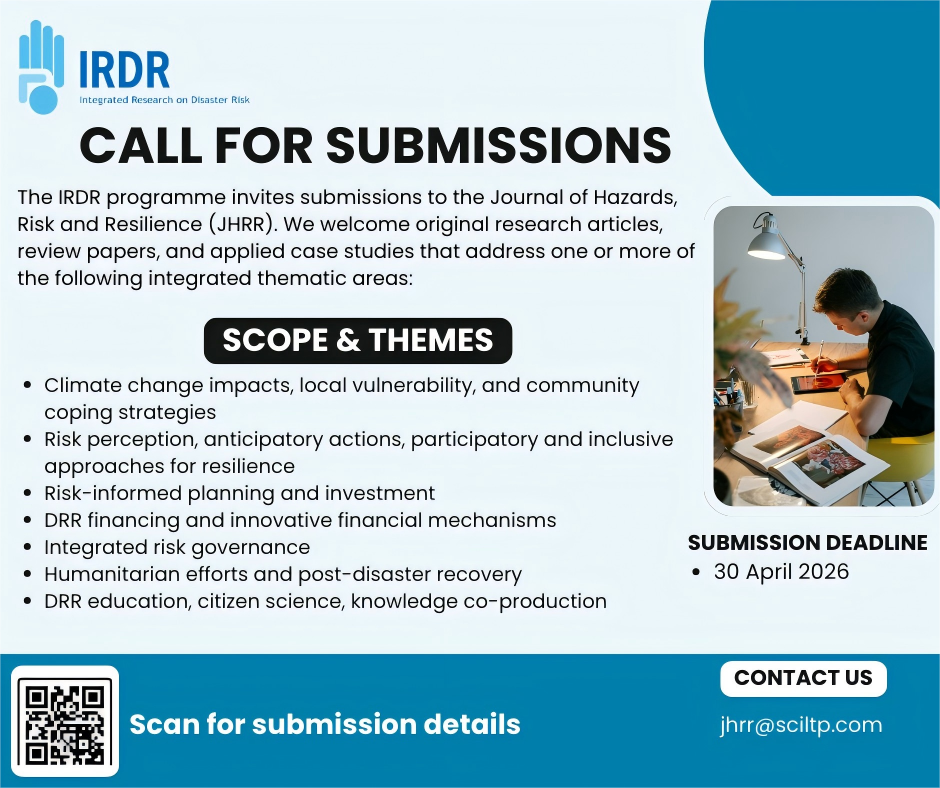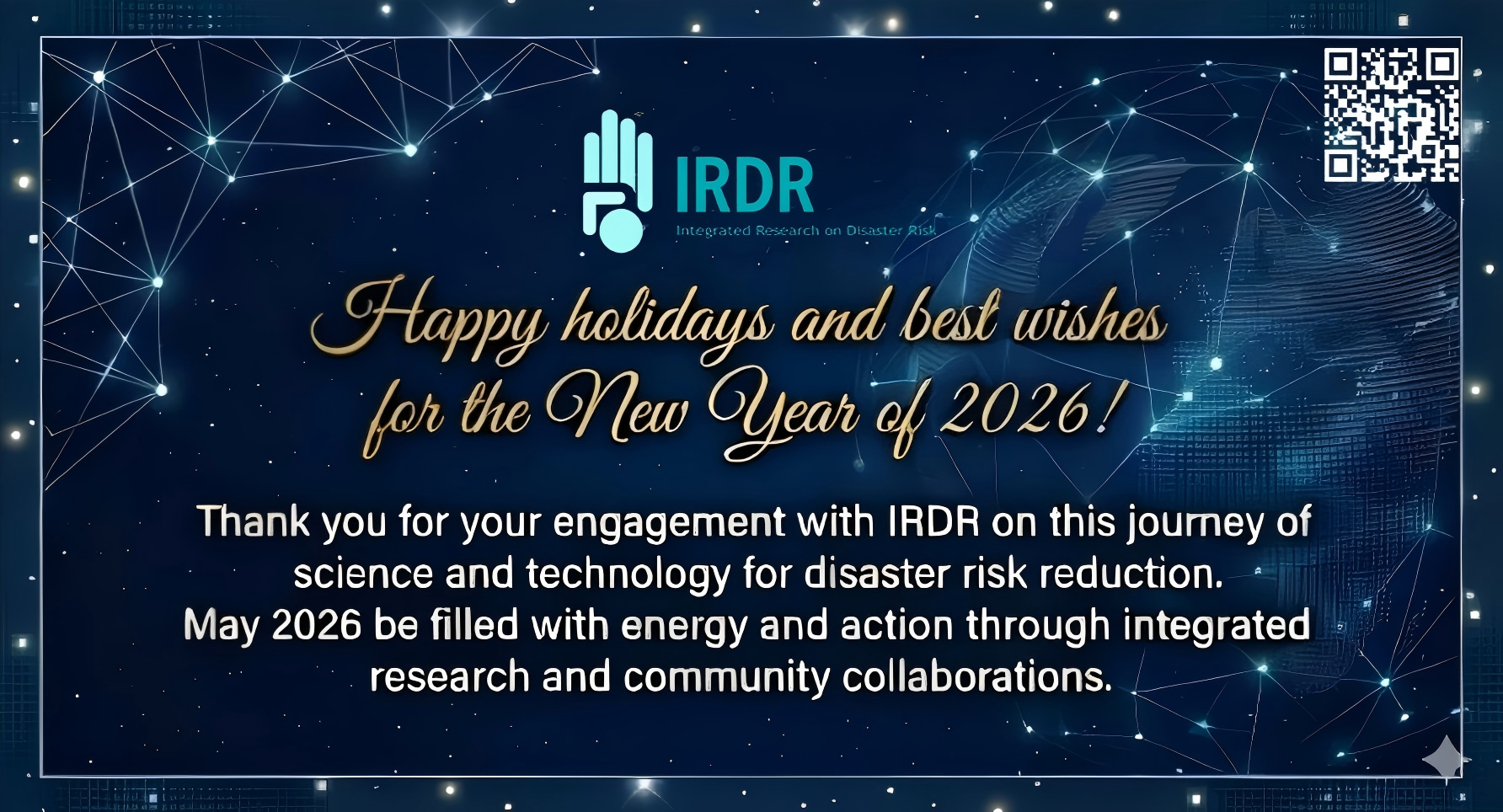The Sendai Framework for Disaster Risk Reduction 2015-2030 (SFDRR) emphasizes managing the risk of small-scale and large-scale, frequent and infrequent, sudden and slow-onset disasters caused by natural or man-made hazards.
One of the most concerned issues in the SFDRR is the extreme climate events posing threats on human societies worldwide. For example, heat waves pose threats on human health immediately and directly; high temperature may also result in enhanced production and accumulation of air pollutants. Both heat stress and air pollutants are harmful to human health. Under climate change, heat waves are occurring more frequently with record-breaking temperature and prolonged periods of time worldwide.
2018 Advanced Institute on Disaster Risk Reduction with Systems Approach for Slow-Onset Climate Disasters (AI-SOCD) focuses on Heat Stress Sensors, Early Warning, and Information Technology will be held from 4 to 8 June, 2018 in IRDR ICoE-Taipei and will focus on the way to learn how to apply a heat -stress indicator, Wet-Bulb Globe Temperature (WBGT), in a heat warning system, and also the implementation in early warning.
This AI calls for participants from young to mid-career practitioners, researchers and policy makers in Asia and the Pacific region with enhanced understanding, skills and practical knowledge to apply systems approaches in DRR research focusing on Heat Stress Sensors, Early Warning, and Information Technology.
The sessions of this AI will include lectures by eminent scholars and practitioners in above-mentioned fields and involved lectures, break-out sessions, hand-on practices, and field visits. The topics to be covered are listed below:
• Concepts, principles and practices of systems approach and systems thinking tools for climate-related DRR research;
• Cross-sector collaboration with systems approach among scientists from meteorology, information technology, and public health;
• Early detection/warning of heat events with multidisciplinary participatory/citizen’s science;
• Hands-on practices of heat-stress sensors;
• Comprehension of the heat stress monitoring and forecast from meteorology, information technology and environmental health perspectives.
All participants are required to work in groups conceptualizing an individual or collaborative project, to be presented in plenary session at the conclusion of the Advanced Institute, which may later be submitted for competitive funding (seed grants) to support follow-up research activities. A “call-for-proposal” will be announced no later than 3-6 months after this AI-SOCD. The trainees will be invited to submit DRR research proposals followed by a competitive reviewing process.
For more information and how to apply, please read the “Call for Participation”. Interested individuals must submit the following items to International Council for Science Regional Office for Asia and the Pacific (ICSU ROAP) no later than 16 April 2018.
Call for ParticipationApplication Form





